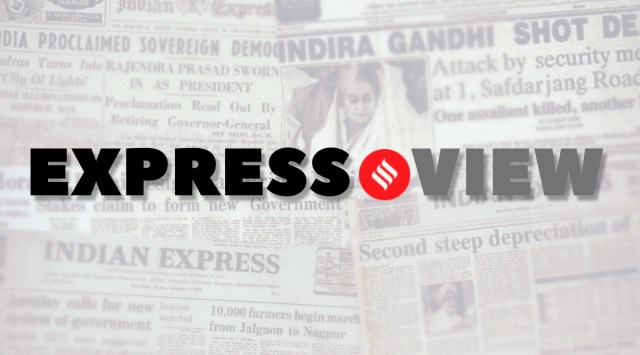
He will be in the Indian capital for barely 24 hours; but the Japanese Prime Minister Fumio Kishida’s visit to Delhi on Monday could turn out to be an inflection point in bilateral relations. It will also mark a new phase in the evolution of Indo-Pacific geopolitics. Kishida will give a major speech at the Capital’s Sapru House and seek India’s cooperation in implementing Japan’s new Indo-Pacific ambitions. There is no doubt that Kishida has deliberately chosen Delhi as the venue for the articulation of a new Indo-Pacific strategy. Delhi, after all, is where Japan first articulated its Indo-Pacific vision nearly 15 years ago. In August 2007, Prime Minister Shinzo Abe outlined two big new ideas about Asia in his address to the Indian Parliament. Abe underlined the essential unity of the Indian and Pacific Oceans by pointing to a strategic “confluence of the two seas”. His other case was for deeper cooperation between Asia’s democracies — what would eventually become the Quadrilateral Forum — to secure the region’s maritime future. It took enormous persistence over an extended period from Abe and the Japanese establishment to rally sceptical partners behind the concept of the Indo-Pacific geography and the Quad that promotes strategic cooperation between Australia, India, Japan, and the United States.
Kishida’s planned update to that Indo-Pacific vision is a response to fundamental changes in the regional and global security environment. Beijing’s new alliance with Moscow launched just before Russia invaded Ukraine in February 2022 shocked Japan. Kishida was quick to see the implications of the Ukraine war for Asia — the potential empowerment of China to seize the territories of its neighbours by force. The horrible consequences of the Ukraine war have compelled Japan to decisively act to strengthen deterrent capabilities against China. Over the last few months, Kishida has announced a dramatic plan to double Tokyo’s defence expenditure over the next five years and build a massive counter-strike capability to dampen China’s expansionism. Besides strengthening national capabilities, Japan is eager to boost regional partnerships and offer economic, infrastructure, and military assistance to smaller countries in the region. Kishida is eager to explore greater collaboration with India in this enterprise. Delhi will be all ears. It wants to know how far Kishida might go in opening up to bilateral defence industrial collaboration with India and develop joint initiatives for regional capacity building.